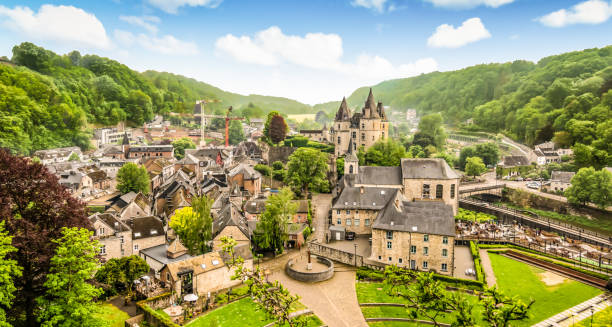Embracing the New Wave of Educational Travel: A Deep Dive into Learning Journeys
Introduction: The travel industry is constantly evolving, bringing forth exciting new trends that redefine our experiences. One such trend gaining traction is educational travel, a movement that combines the thrill of exploration with the pursuit of knowledge. This insightful piece delves into the intriguing world of learning tourism, revealing its origins, current trends, and the impact on intrepid globetrotters.

A Historical Overview of Educational Travel
Educational travel has a rich history dating back centuries. The concept was born out of the Grand Tours, a rite of passage for young aristocrats during the 17th and 18th centuries. These tours, primarily across Europe, aimed to provide education that went beyond books, exposing travelers to different cultures, languages, and historical landmarks.
Fast forward to the present day, educational travel has evolved to offer immersive experiences for all ages and demographics, transcending the confines of classrooms and formal education.
The Modern Face of Learning Tourism
Contemporary educational travel is an amalgamation of various elements that make it a multifaceted experience. It now includes language immersion programs, cooking classes in foreign countries, wildlife conservation initiatives, and historical heritage tours, among others.
Educational travel companies are now offering specialized tours focusing on different areas such as architecture, gastronomy, agriculture, and more. These curated experiences allow travelers to delve deeper into their interests while exploring new destinations.
Advantages and Challenges of Educational Travel
Educational travel offers numerous benefits, including enhanced cultural understanding, improved language skills, and a broader perspective on global issues. It also fosters critical thinking and adaptability, as travelers navigate unfamiliar environments and cultures.
However, it has its challenges, too. Educational travel requires careful planning to ensure a balance between leisure and learning. Additionally, such trips can be more expensive than conventional tourism due to the specialized nature of the experiences.
The Impact of Educational Travel
Educational travel significantly enhances the travel experience. It offers an avenue for meaningful engagement with local communities, allowing travelers to appreciate the nuances of different cultures while learning something new.
This form of travel also promotes sustainable tourism practices. Many educational travel experiences focus on conservation and sustainability, teaching travelers the importance of responsible tourism.
Practical Tips for Planning Educational Travel
- Research: Identify your areas of interest and look for destinations that offer experiences aligned with them.
- Plan: Plan your itinerary carefully to balance learning and leisure activities.
- Local Experiences: Prioritize experiences that offer interaction with local communities or experts in your field of interest.
- Travel Companies: Choose travel companies that specialize in educational travel for a seamless experience.
- Be Open-Minded: Be open to learning new things and stepping out of your comfort zone.
Wrapping Up
Educational travel offers an enriching experience that combines the thrill of exploration with the joy of learning. This trend is shifting the travel paradigm, encouraging travelers to seek more than just leisure from their trips. A well-planned educational trip can offer an unparalleled opportunity to learn, grow, and appreciate the world from a fresh perspective. So, the next time you plan a vacation, consider turning it into a learning journey.




